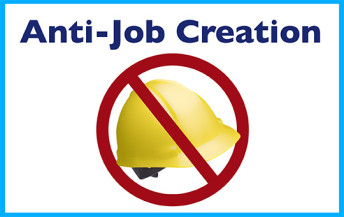In an editoria l published in the Herald-Dispatch out of Huntington, WV, Isaac Sponaugle, a member of the West Virginia House of Delegates, makes the argument that forced pooling is unconstitutional because it’s a “taking” using eminent domain. To be more precise, he points out that the Kelo decision in 2005 actually makes it constitutional, but argues that the Kelo decision was a bad decision, and that eminent domain is now too big for its own britches. I agree entirely.
l published in the Herald-Dispatch out of Huntington, WV, Isaac Sponaugle, a member of the West Virginia House of Delegates, makes the argument that forced pooling is unconstitutional because it’s a “taking” using eminent domain. To be more precise, he points out that the Kelo decision in 2005 actually makes it constitutional, but argues that the Kelo decision was a bad decision, and that eminent domain is now too big for its own britches. I agree entirely.
Allowing oil and gas companies to exercise eminent domain in the guise of forced pooling, fair pooling, or lease integration (whatever you want to call it) is simply wrong. If mineral owners don’t like the lease that’s being offered, they should be able to turn it down flat. It’s up the the mineral owners to determine whether the lease is fair, whether they want development of their minerals, and whether the price is right. Oil and gas companies already have the upper hand in oil and gas lease negotiations, they shouldn’t be given even more leverage.

 One could also argue that forced pooling will decrease jobs due fewer landmen being needed to put together drilling units.
One could also argue that forced pooling will decrease jobs due fewer landmen being needed to put together drilling units.